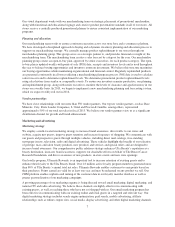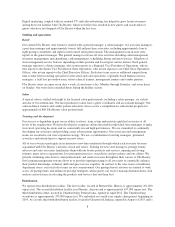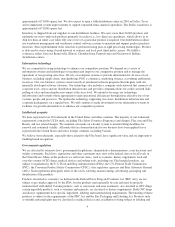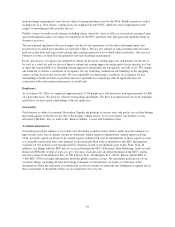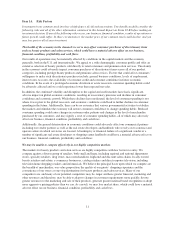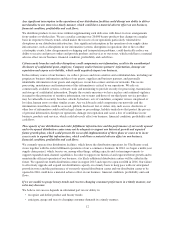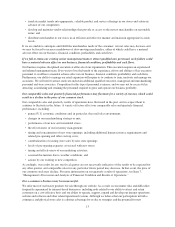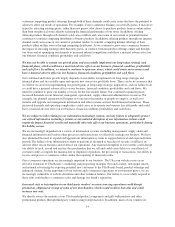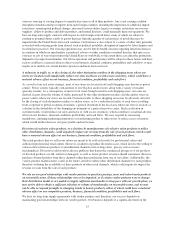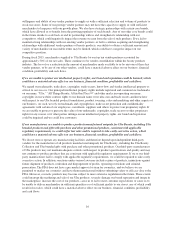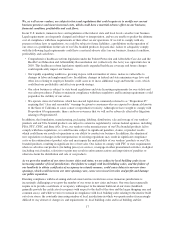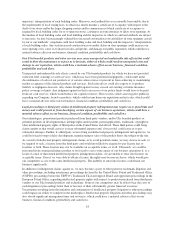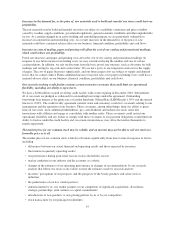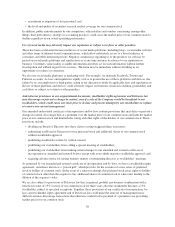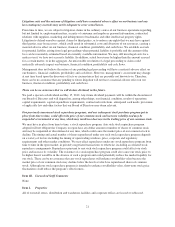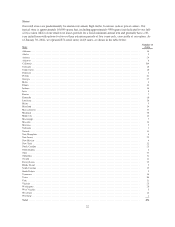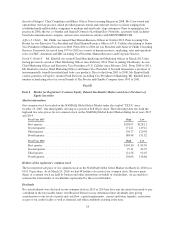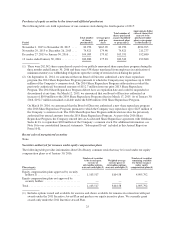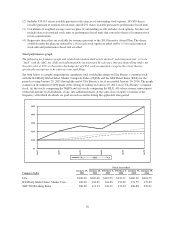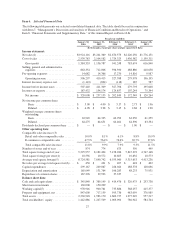Ulta 2015 Annual Report Download - page 23
Download and view the complete annual report
Please find page 23 of the 2015 Ulta annual report below. You can navigate through the pages in the report by either clicking on the pages listed below, or by using the keyword search tool below to find specific information within the annual report.We, as well as our vendors, are subject to laws and regulations that could require us to modify our current
business practices and incur increased costs, which could have a material adverse effect on our business,
financial condition, profitability and cash flows.
In our U.S. markets, numerous laws and regulations at the federal, state and local levels can affect our business.
Legal requirements are frequently changed and subject to interpretation, and we are unable to predict the ultimate
cost of compliance with these requirements or their effect on our operations. If we fail to comply with any
present or future laws or regulations, we could be subject to future liabilities, a prohibition on the operation of
our stores or a prohibition on the sale of our Ulta branded products. In particular, failure to adequately comply
with the following legal requirements could have a material adverse effect on our business, financial condition,
profitability and cash flows.
‰Comprehensive healthcare reform legislation under the Patient Protection and Affordable Care Act and the
Health Care Education and Affordability Reconciliation Act (collectively, the Acts) was signed into law in
2010. This healthcare reform legislation significantly expanded healthcare coverage and future changes
could significantly impact our business.
‰Our rapidly expanding workforce, growing in pace with our number of stores, makes us vulnerable to
changes in labor and employment laws. In addition, changes in federal and state minimum wage laws and
other laws relating to employee benefits could cause us to incur additional wage and benefits costs, which
could hurt our profitability and affect our growth strategy.
‰Our salon business is subject to state board regulations and state licensing requirements for our stylists and
our salon procedures. Failure to maintain compliance with these regulatory and licensing requirements could
jeopardize the viability of our salons.
‰We operate stores in California, which has enacted legislation commonly referred to as “Proposition 65”
requiring that “clear and reasonable” warnings be given to consumers who are exposed to chemicals known
to the State of California to cause cancer or reproductive toxicity. Although we have sought to comply with
Proposition 65 requirements, there can be no assurance that we will not be adversely affected by litigation
relating to Proposition 65.
In addition, the formulation, manufacturing, packaging, labeling, distribution, sale and storage of our vendors’
products and our Ulta branded products are subject to extensive regulation by various federal agencies, including
FDA, FTC, CPSC and State AGs. If we, our vendors or the manufacturers of our Ulta branded products fail to
comply with those regulations, we could become subject to significant penalties, claims, or product recalls,
which could harm our results of operations or our ability to conduct our business. In addition, the adoption of
new regulations or changes in the interpretations of existing regulations may result in significant compliance
costs or discontinuation of product sales and may impair the marketability of our vendors’ products or our Ulta
branded products, resulting in significant loss of net sales. Our failure to comply with FTC or state requirements
when we advertise our products (including prices) or services, or engage in other promotional activities, in digital
(including social media), television or print may result in enforcement actions and imposition of penalties or
otherwise harm the distribution and sale of our products.
As we grow the number of our stores in new cities and states, we are subject to local building codes in an
increasing number of local jurisdictions. Our failure to comply with local building codes, and the failure of
our landlords to obtain certificates of occupancy in a timely manner, could cause delays in our new store
openings, which could increase our store opening costs, cause us to incur lost sales and profits and damage
our public reputation.
Ensuring compliance with local zoning and real estate land use restrictions across numerous jurisdictions is
increasingly challenging as we grow the number of our stores in new cities and states. Our store leases generally
require us to provide a certificate of occupancy with respect to the interior build-out of our stores (landlords
generally provide the certificate of occupancy with respect to the shell of the store and the larger shopping area and
common areas), and while we strive to remain in compliance with local building codes relating to the interior build
out of our stores, the constantly increasing number of local jurisdictions in which we operate makes it increasingly
difficult to stay abreast of changes in, and requirements of, local building codes and local building and fire
17


